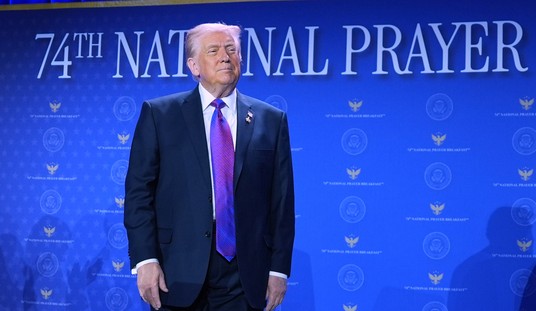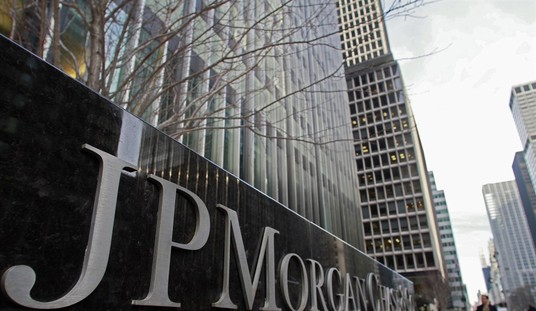This isn’t just a plea to governors, of course, it’s a plea to the average joe not to let down his or her guard on things like masks and social distancing. Just because a business is open doesn’t mean you need to patronize it before you get your shots. Cases are down 70 percent since the worst of the winter surge, but as you can see from the latest data, they’ve stopped falling at around 70,000 per day or so. That’s more than enough community spread to seed another wave rapidly if people let down their guards, especially with more contagious variants circulating:

The White House’s COVID brain trust is looking at that graph and calculating that a population that was willing to socialize at Christmas and New Year’s amid a huge surge in infections is certainly willing to socialize after a barrage of good news about vaccines proliferating and daily case counts declining. And so here were Fauci and CDC director Rochelle Walensky within the past 24 hours all but pleading with governors not to ease up now, knowing that any deaths that can be avoided this month by preventing social interactions may be averted entirely as vaccinations ramp up:
As governors across the country begin to ease some coronavirus restrictions, Dr. Anthony Fauci says he thinks the efforts are premature: “It is really risky to say, ‘It’s over. We’re on our way out. Let’s pull back.’” #CNNSOTU pic.twitter.com/KgRdxQxuDx
— CNN Politics (@CNNPolitics) February 28, 2021
“We have the ability to stop a potential fourth surge of cases in this country.” — CDC Director Rochelle Walensky pic.twitter.com/uVWtMBgLJn
— The Recount (@therecount) March 1, 2021
The interesting wrinkle to these entreaties to hang on for a little while longer is that, logically, they’re aimed as much at Democratic governors than Republican ones. That’s counterintuitive because blue-state govs are normally hard-asses about closing things down while red-state ones are more eager to open up — and that dynamic remains true. But after a long winter in which businesses were shuttered in Dem strongholds like New York, New Jersey, and Massachusetts, the thaw in daily cases is leading even figures like Andrew Cuomo to look for ways to reopen. New York movie theaters are set to open by the end of this week; indoor dining in Massachusetts is open at full capacity as of today; and New Jersey recently loosened restrictions on stadiums and arenas.
To which Fauci and Walensky reply: What are you doing? By the end of this month we’ll have a huge surge in the supply of vaccines, allowing us to vaccinate many millions more vulnerable people. Instead of hanging on for a few more weeks, Cuomo et al. want to put them at risk before they’re immunized.
I think Nate Silver’s right about the political intuition here. If there were any reason to believe that Fauci and Walensky would be more eager to reopen next month, maybe blue-state governors would be more willing to ride it out in March and take the political heat that comes with keeping businesses shut for several more weeks. But there’s no reason to believe it. Because the variants are unpredictable, it’s possible that cases would climb this month even if blue states kept restrictions in place. And because Fauci and Walensky need only consider the public-health side of the equation, not the economic side, they’ll naturally lean towards greater restrictions in any circumstance:
I, too, wish states kept restrictions in place for another few weeks until we're more caught up on vaccinations etc. But I think it's worth thinking about why states (recently including lots of blue states/cities) are opening up despite the CDC and others encouraging them not to. https://t.co/FEOcvz3PUh
— Nate Silver (@NateSilver538) March 1, 2021
Second, they probably think of public health officials as *always* wanting to keep *everything* closed without clear timelines. Now, the rationale is about new variants. I (Nate) think that + timing of vaccines is a good rationale! But governors may see this as moving goalposts.
— Nate Silver (@NateSilver538) March 1, 2021
As for red-state governors like Kristi Noem, they’re probably unreachable by appeals from the likes of Fauci, especially now that a Democrat’s in the White House. Noem boasted yesterday on “Face the Nation” that her state has never ordered businesses to close, which is super but has come with a steep public-health price tag:
On Sunday, Fauci said on CBS’s “Face the Nation” that Noem’s remarks were “unfortunate” and “not very helpful,” especially while more contagious variants are proliferating in the United States and the nation is ramping up a massive vaccination effort.
“Right now, as we are going down and plateauing, is not the time to declare victory,” Fauci told anchor Margaret Brennan.
“Sometimes, you think things are going well, and just take a look at the numbers,” Fauci added. “They don’t lie.”
South Dakota ranks second nationally for the most coronavirus cases reported per capita, eighth for total deaths per capita and ninth for peak hospitalized count per capita, according to data gathered and analyzed by The Washington Post.
Local officials in some red states are keeping an eye on case counts and tightening restrictions accordingly. In Florida, where the British virus is circulating, cities are required by Ron DeSantis’s executive order to let bars, restaurants, and clubs operate at 50 percent capacity at least. But places like Miami Beach have put more cops on patrol ahead of spring break to make sure that visitors comply with existing regulations and are being sticklers about permits and licenses for entertainment to limit social gatherings. Is that going to be enough to hold down cases in Florida? Certainly, it’s not going to do as much as Fauci and Walensky would like. But oh well.
I’ll leave you with this counterpoint from Scott Gottlieb, who’s normally also a “safety first” advocate in keeping with his profession but who seems to be shifting towards a posture more liberal than Fauci’s or Walensky’s as vaccinations increase. The fact that so many senior citizens have been vaccinated means that even another wave should mean fewer hospitalizations than previous waves have brought. That calls for loosening restrictions somewhat, no? Maybe not to the point of lifting all capacity limits on indoor dining, but something.
More than 40% of those over age 65 are vaccinated with at least one dose. We need to start considering that population is becoming less vulnerable to covid. Against that backdrop, we should judge mitigation and the risk of infection differently as the vulnerable become protected.
— Scott Gottlieb, MD (@ScottGottliebMD) February 28, 2021








Join the conversation as a VIP Member